第16章
"Treat these sons of the forest as men and brethren,'' he would say;"and let us endeavor to make them Christians. Their forefathers were of that chosen race whom God delivered from Egyptian bondage. Perchance he has destined us to deliver the children from the more cruel bondage of ignorance and idolatry. Chiefly for this end, it may be, we were directed across the ocean."When these other visitors were gone, Mr. Eliot bent himself again over the half-written page. He dared hardly relax a moment from his toil. He felt that, in the book which he was translating, there was a deep human as well as heavenly wisdom, which would of itself suffice to civilize and refine the savage tribes. Let the Bible be diffused among them, and all earthly good would follow. But how slight a consideration was this, when he reflected that the eternal welfare of a whole race of men depended upon his accomplishment of the task which he had set himself!
What if his hands should be palsied? What if his mind should lose its vigor? What if death should come upon him ere the work were done? Then must the red man wander in the dark wilderness of heathenism forever.
Impelled by such thoughts as these, he sat writing in the great chair when the pleasant summer breeze came in through his open casement; and also when the fire of forest logs sent up its blaze and smoke, through the broad stone chimney, into the wintry air. Before the earliest bird sang in the morning the apostle's lamp was kindled; and, at midnight, his weary head was not yet upon its pillow. And at length, leaning back in the great chair, he could say to himself, with a holy triumph, "The work is finished!"It was finished. Here was a Bible for the Indians. Those long-lost descendants of the ten tribes of Israel would now learn the history of their forefathers. That grace which the ancient Israelites had forfeited was offered anew to their children.
There is no impiety in believing that, when his long life was over, the apostle of the Indians was welcomed to the celestial abodes by the prophets of ancient days and by those earliest apostles and evangelists who had drawn their inspiration from the immediate presence of the Saviour. They first had preached truth and salvation to the world. And Eliot, separated from them by many centuries, yet full of the same spirit, has borne the like message to the New World of the west. Since the first days of Christianity, there has been no man more worthy to be numbered in the brotherhood of the apostles than Eliot.
"My heart is not satisfied to think," observed Laurence, "that Mr.
Eliot's labors have done no good except to a few Indians of his own time. Doubtless he would not have regretted his toil, if it were the means of saving but a single soul. But it is a grievous thing to me that he should have toiled so hard to translate the Bible, and now the language and the people are gone! The Indian Bible itself is almost the only relic of both.""Laurence," said his Grandfather, "if ever you should doubt that man is capable of disinterested zeal for his brother's good, then remember how the apostle Eliot toiled. And if you should feel your own self-interest pressing upon your heart too closely, then think of Eliot's Indian Bible. It is good for the world that such a man has lived and left this emblem of his life."The tears gushed into the eyes of Laurence, and he acknowledged that Eliot had not toiled in vain. Little Alice put up her arms to Grandfather, and drew down his white head beside her own golden locks.
"Grandfather," whispered she, "I want to kiss good Mr. Eliot!"And, doubtless, good Mr. Eliot would gladly receive the kiss of so sweet a child as little Alice, and would think it a portion of his reward in heaven.
Grandfather now observed that Dr. Francis had written a very beautiful Life of Eliot, which he advised Laurence to peruse. He then spoke of King Philip's War, which began in 1675, and terminated with the death of King Philip, in the following year. Philip was a proud, fierce Indian, whom Mr. Eliot had vainly endeavored to convert to the Christian faith.
"It must have been a great anguish to the apostle," continued Grandfather, "to hear of mutual slaughter and outrage between his own countrymen and those for whom he felt the affection of a father. A few of the praying Indians joined the followers of King Philip. A greater number fought on the side of the English. In the course of the war the little community of red people whom Mr. Eliot had begun to civilize was scattered, and probably never was restored to a flourishing condition.
But his zeal did not grow cold; and only about five years before his death he took great pains in preparing a new edition of the Indian Bible.""I do wish, Grandfather," cried Charley, "you would tell us all about the battles in King Philip's War.""Oh no!" exclaimed Clara. "Who wants to hear about tomahawks and scalping knives?""No, Charley," replied Grandfather, "I have no time to spare in talking about battles. You must be content with knowing that it was the bloodiest war that the Indians had ever waged against the white men; and that, at its close, the English set King Philip's head upon a pole.""Who was the captain of the English?" asked Charley.
"Their most noted captain was Benjamin Church, a very famous warrior,"said Grandfather. "But I assure you, Charley, that neither Captain Church, nor any of the officers and soldiers who fought in King Philip's War, did anything a thousandth part so glorious as Mr. Eliot did when he translated the Bible for the Indians.""Let Laurence be the apostle," said Charley to himself, "and I will be the captain."